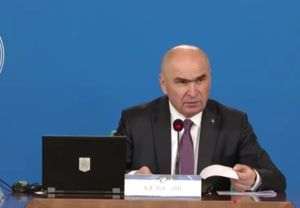Reporter: What steps do you think the government should take to prevent more failures of the privatization offerings conducted through the stock exchange? Do you think there is time to take such measures?
Victor Cionga: Let's make a brief recap: so far there have been three more substantial attempts at privatization through the stock market: two IPOs, meaning Transelectrica (in 2006) and Transgaz (in 2007) which successfully increased their capital; and a Secondary Public Offering (SPO) last summer, that of OMV Petrom, which failed because of known reasons, namely the perception of foreign institutional investors (who, in the case of such offerings, make the difference between success and failure) that the discount offered by the seller (around 2.5%) was not substantial enough to make the investment attractive enough for them (in other words from a discount of 14.5%).
Before answering your question, allow me to make a side note concerning two important differences between TEL and TGN on one hand, and SNP on the other. First of all, the first two were IPOs, more precisely, capital increases (which investors like very much because that means that the money stays in the company and helps it grow); also, because there is no reference price in the market, the seller was not bound to any such reference price and every investor ran their own numbers and decided whether to subscribe or not, in what volume and at what price; second of all, the two IPOs were made in the years when all the equity markets were at their peak effervescence, including the Romanian one, which had a lot of "imperfections", which at the time, given the context, were overlooked by investors ("imperfections" which unfortunately still exist today, after all these years!).
The Secondary Public Offer for the sale of 9.84% of Petrom, which was attempted in summer last year, involved the sale of already existing shares (on principle, such sales are less interesting to investors than capital increases); the context in which the offer was launched was completely different from the one mentioned above: in particular because of the sovereign debt crisis, capital markets were extremely nervous with excessive volatility. We will not review the well known causes for the situation which unfortunately continues today, but we remind that last year, on the international capital markets of the USA, Europe and Asia, several public offerings (secondary or initial) were either withdrawn or sold at significant discounts, which sometimes exceeded 25% (see the case of Commerzbank).
The first conclusion that we should draw starting from that is that in the case of the SPO the investors are expecting a significant discount compared to the market price; meaning that in the case of the offerings launched on the domestic market, the price at which investors will be willing to participate will be significantly discounted when compared to the price the stock is trading at at the time of the launch of the offering. As a personal opinion, I dare predict that in the case of TEL (which will be selling some of its existing stock), given the current context and the particulars of the company, investors will be asking for a discount found somewhere between 20%-30%. I am convinced that in both secondary public offerings, the selected intermediaries will provide the best advice to their clients and will obviously attempt to get a selling price as high as possible; but regardless of how skilled the intermediary is, the market has the last word and will dictate the price at which the trade can be conducted, a price which the seller can take or not. A public offering is far different from a direct negotiation between the parties; from experience, I can tell you that this is something that is sometimes not understood (or sometimes there is a refusal to understand it!) by many of the people involved directly or indirectly in the public offerings (and just so I can be very clear I am not talking about the OPSPI).
In my opinion, in order to successfully conduct an SPO it is essential that the government make changes to the Government Decision 577/2002; that decision establishes the procedure for setting the price of shares when selling government stakes. I think that article 70 should be amended to include specific paragraphs pertaining to the case when the selling of shares is being done through public offerings; this change will provide both the OPSPI as well as other ministries involved in similar deals (such as, for instance, the Ministry of Transports) with the legal ground for accepting the price proposed by the intermediary which was selected to conduct a public offering, following the "book building" process. Let's not forget that on various levels, the decisions are made by public sector clerks, who should be offered the comfort of a clearly formulated legal protection when they suggest a certain structure of a transaction on the capital market, a transaction which also has a price building mechanism attached; this comfort becomes important, especially in Romania's tense context on all layers of society, which may become even more tense with the elections getting near.
The amendment of the Government Decision 577 is easily done by the government and can be done in a meeting; therefore, I believe that there is enough time to implement this decision so it can make its effect felt (a positive one) on the offering of TEL.
Another thing which the government can do (and I for one think that it is very important that they do it) is to officially announce that administrative measures such as the one made in the case of the donation to the state budget made by Romgaz in 2010 will not occur again in the case of companies in which the state holds control. That decision was received extremely badly by the community of investors interested in Romania and prior to launching the new offerings on the market it would be wise to eliminate investors' fears that such measures could be taken again.
It needs to be considered that any kind of measures which the state will take in connection with the companies it controls, viewed as violating the rules of good corporate governance, will be sanctioned by investors, starting with the application of a greater discount, and even going as far as to simply refusing to analyze the offering in question, and maybe even the ones that will follow.
I have to remind that a failure (the case when the SPO is launched but does not get enough subscribers to make it successful) of a relatively small offering such as the one of TEL could have a negative effect, which would be amplified, meaning it would inhibit the interest of institutional investors in all of the other Romanian offerings which would follow. And that is why I think that you and your colleagues in your line of work could play an important part in supporting the modernization of the capital market; as well as creating a climate which would support the offerings which the state is preparing, by avoiding the "cacophony" which surrounded the offering of Petrom last year.
Reporter: Why would foreigners invest in the offerings of the state? What are investors' grievances compared to the current stage of development of the capital market in Romania?
Victor Cionga: I think we need to be more nuanced here: why should foreigners invest now (meaning right now or in the near future) on the Romanian capital market? Before we answer this question, we should make some considerations; first of all, we should look at the enthusiasm which foreign and domestic investors alike had for the region which we belong to, between 2005 and 2007. As a result, during that period, the valuations of most assets rose (land, buildings, shares of listed companies, the values of mergers and acquisitions etc.) and there was an investment frenzy in most areas; obviously, the IPOs made at the time by the state and/or by companies controlled by private shareholders (Transelectrica, Transgaz, Flamingo, Alumil etc). In the context of a market that was rising continuously, institutional investors which were dedicated to the emerging Europe area were joined by other categories (including foreign retail investors) that would not traditionally focus on this region. In Romania, in almost all sectors (and especially in the real estate sector), the markets were dominated by the sellers; I have found that today, in some cases there is still a kind of nostalgia that stubbornly persists (and not just in the private sector) over the way things were between 2005 and 2007. Unfortunately the nostalgia is also accompanied by a myopic refusal to accept the new economic realities which surround us. In the aforementioned effervescence conditions, investors overlooked the imperfections of the Romanian capital market: stuffy regulations with a heavy hint of bureaucracy which they were not used to, the absence of nominee accounts, an expensive market to trade in, compared to the markets in the region, low liquidity (but which was only viewed as a temporary weakness). Obviously, the successes brought about by the rise of the BSE indexes, and by the public offers have led to hopes that the market would develop along the same "time tested model".
The general economic situation and the enthusiasm of the capital markets changed drastically starting with March - April 2008 (after the Bear Stearns "incident") and have deteriorated rapidly after the collapse of Lehman Bros, as the year 2009 meant the beginning of the "crossing of the desert" for the equity markets. At the moment, it's a buyer's market and both the number of funds dedicated to the region that we are located in and their appetite for investments have decreased significantly.
In spite of all the efforts of the institutions which oversee the local capital market (the CNVM, the BSE, the Depository), our market still lags behind its competitors in the region, both in terms of regulations as well as of the costs which it charges investors; for those who are interested in further documentation on the prices the BSE charges compared to those of its competition, I would recommend a very good research report called "Company profile, the Bucharest Stock Exchange" published in English on January 24th 2012.
In response to the question on how a Romanian IPO or SPO can compete for the attention of an institutional foreign investor: in a realistic manner, first and foremost through the offered price which would give investors an attractive discount;
Given all of the above, the interest of all the stakeholders in the Romanian capital market would be for it to become more competitive in comparison to its rivals in the region; the process of increasing the competitiveness of the capital market is not simple, as it is a part of a much larger and more complex process which we do not want to insist on. But what can happen in an early phase are changes by adopting the standards which investors expect: the procedures for the opening of accounts and the cost of portfolio maintenance must at least match those offered by the region's champions, if not even friendlier; the existence of a nominee account at European standards, the permission of making adequately regulated OTC transactions, giving issuers the choice of making a closed or open "book'' offerings are some of the necessary changes.
If, in the future, the CNVM, the Bucharest Stock Exchange, the Depository, the Ministry of Finance and the broker community will continue to disregard the feedback received from foreign institutional investors, the ones who today make the difference between success and failure for a substantial offering on a market like ours, which still lacks powerful domestic players, then it is most likely that the Romanian capital market will remain a fringe player; in the longer run, the number of brokers will fall as well.
Considering the overall economic situation and some of the potential developments in the region which could take place soon (such as Greece's potential default), I have changed my outlook which I initially mentioned in article published on January 25th ("THE PROPRIETATEA FUND - ONE YEAR AFTER THE LISTING: the voice of investors") and I believe that the implementation of the aforementioned changes needs to be done as soon as possible, without delays. One of the first challenges which the CNVM as well as the management of the BSE will face soon will be their attitude towards the shareholders' wish to get the Proprietatea Fund listed in Warsaw; obviously, if as long as they approve a dual listing in the General Shareholder Meeting. Such a wish is legitimate, especially in a country which is a member of the European Community and the market's authorities should take it into account. On the other hand, in the short term this development will result in lower earnings for both institutions, for the Central Depository, as well as for some of the local brokers. Although, some statistics show that after dropping on the initial the domestic market for a while, liquidity returns on the initial market thus generating the commissions afferent to the stock trading on the local market. It will be interesting to see what stance the institutions of the market will take on this matter (especially the CNVM); denying the request of the shareholders of the Proprietatea Fund (represented in this action by the Templeton management firm) or postponing it without any valid reason will represent both a test of their dedication to the modernization and openness of the market as well as, even more importantly, send a signal to other private domestic issuers; if they were to have any concerns about the way they might be treated on the domestic market, in the future they may decide trying to get listed directly on the foreign stock exchanges in the region, and forgo the step of getting listed on the Bucharest Stock Exchange first. Let's not forget that, at least for the moment, the favorite destination for the champions in the Central and Eastern European region, is the Warsaw Stock Exchange; at the moment, the stocks of 39 foreign companies are traded on the Polish Stock Exchange; among some of the latest listings I will mention the one conducted in November 2011 by Wood & Co for Sopharma, the leader of the Bulgarian pharmaceutical market. Perhaps it is interesting to mention as an example, for the Romanian decision makers that at the current time, three Bulgarian companies of the 1st tier of the Sofia Exchange (which are "blue chips" on the Bulgarian stock market) are already listed on the Warsaw Stock Exchange and are enjoying success. It would seem that a fourth one, Monbat, one of the largest makers of car and industrial batteries in the Balkan region, will also take a similar step.
Reporter: What could the Bucharest Stock Exchange do to make the offerings more successful?
Victor Cionga: The new management of the BSE recently presented its view on the eight strategic development priorities; Personally I found it an interesting approach and like many of those interested in the local stock market, I await its implementation; this process will take some time, but I hope it will be as quick as possible. But let us not forget that in such cases, there are also objective and subjective constraints, some of which are not yet transparent. Anyway I am convinced that the BSE can become a center for excellence of the Romanian stock market in Romania and get actively involved in the market's modernization process. One step I dare suggest it take (before appointing a new executive manager) would be to offer technical support to the management of the companies in which the state is a majority shareholder which are interested in going public and which want to prepare for this process before selecting the intermediary. I am convinced that there is still a lot to do and that soon, the members of the board of directors and the executive manager who will be selected will find and prioritize a number of projects according to the strategy which was presented.
Reporter: Are the market conditions more favorable now than they were in the summer?
Victor Cionga: Let's recap: as you well know, two weeks after the expiration of the offering of OMV Petrom, there was a period of major turmoil, during which time the markets fell dramatically; during that period of volatility the price of OMV Petrom went from 0.38 lei/share to 0.27 lei/ share and then stabilized for a long time at 0.29-0.30 lei/share. Over the last weeks however the stock rose spectacularly, to reach 0.36 on February 15th, creating hopes among shareholders and analysts. Today however, we are closer than ever to the last act of the "Greek sovereign debt saga" and it is very possible that "the end" may not be a happy one at all. The markets also expect a Greek default, but it is not yet clear whether they have already included all the afferent risks; my intuition tells me "not yet" and we may therefore see more turmoil with a hard to anticipate dynamic. In short, we are very likely to see a period of high volatility; it would be wonderful if the offerings which the OPSPI is considering were to "catch" a period of tranquility in the markets.
It needs to be considered that any kind of measures which the state will take in connection with the companies it controls, viewed as violating the rules of good corporate governance, will be punished by investors, starting with the application of a greater discount, and even to simply refusing to analyze the offering in question, and maybe even the ones that will follow.
•
I dare predict that in the case of TEL (which will be selling some of its existing stock), given the current context and the particulars of the company, investors will be asking for a discount ranging between 20%-30%.
•
I have to remind that a failure (the case when the SPO is launched but does not get enough subscribers to make it successful) of a relatively small offering such as the one of TEL could have a negative effect, which would be amplified, meaning it would inhibit the interest of institutional investors in all of the other Romanian offerings which would follow.
•
In the aforementioned effervescence conditions, investors overlooked the imperfections of the Romanian capital market: stuffy regulations with a heavy hint of bureaucracy which they were not used to, the absence of nominee accounts, an expensive market to trade in, compared to the markets in the region, low liquidity (but which was only viewed as a temporary weakness).
•
In my opinion, in order to successfully conduct the SPO type offers it is essential that the government make changes to the Government Decision 577/2002; that government decision sets the procedure for the setting of the price of shares when selling government stakes.
•
Another thing which the government can do (and I for one think that it is very important that they do it) is to officially announce that administrative measures such as the one made in the case of the donation to the state budget made by Romgaz in 2010 will not happen again in the case of companies in which the state holds control.
•
We should forget the enthusiasm which foreign and domestic investors both had between 2005 and 2007 for the region which we are also a part of.






























































